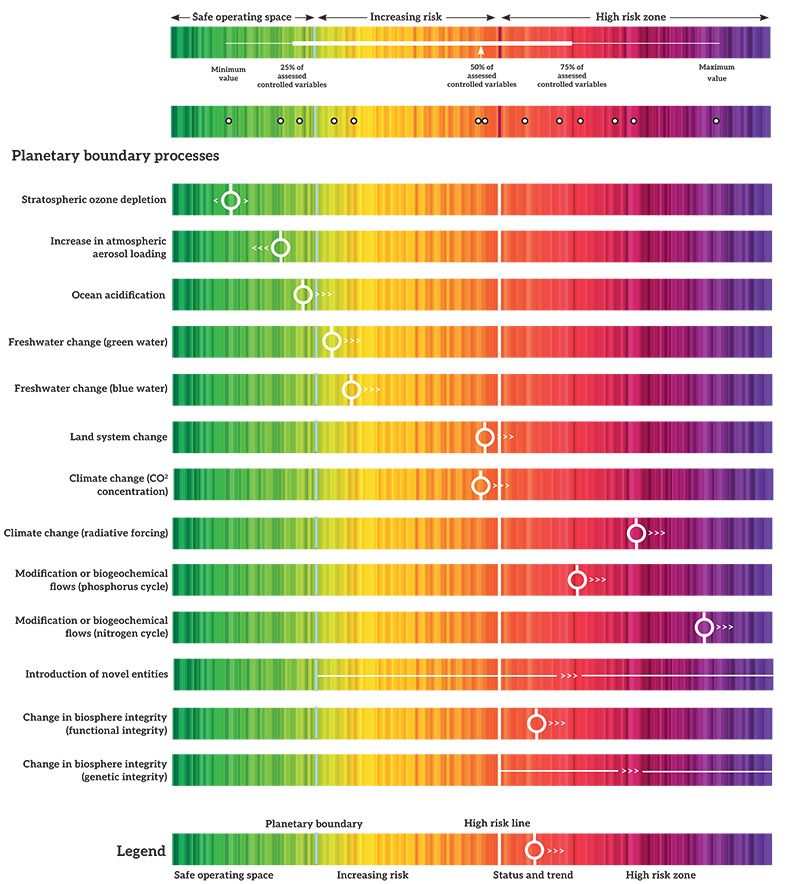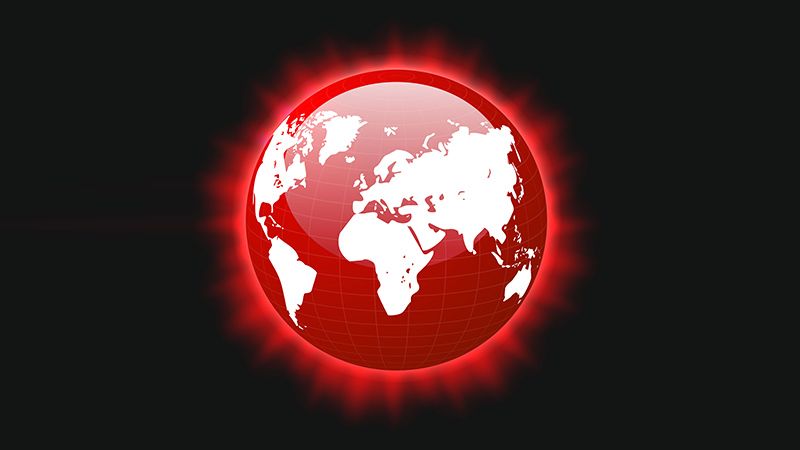Planet Earth is far outside the safe operating space for humanity and rapidly approaching “a state of red alert”, according to the Planetary Boundaries Science (PBScience) initiative’s inaugural Planetary Health Check (PHC).
Planetary Boundaries such as climate change, change in biosphere integrity and ocean acidification are defined for the nine critical Earth system processes that regulate life support systems on Earth. They outline a safe operating space within which humanity can thrive while keeping the planet stable and resilient. Once a boundary is breached, the risk of permanently damaging Earth’s life support functions increases as does the probability of crossing tipping points that cause irreversible changes. If multiple boundaries are breached, risks sharply increase.
The Planetary Health Check shows these critical Earth’s systems functions are at risk, with six of nine Planetary Boundaries breached, the potential for an imminent breach of a seventh and a clear trend towards further transgression. While a boundary transgression is not equivalent to drastic changes happening overnight, the report warns of the rising risks.
The launch of the PHC is based on the publication of the inaugural Planetary Health Check Report, which will be published annually to recognise the importance of regular updates on Earth’s health while providing consistent insights for stakeholders globally.
Planetary health check symbols explained

“Our updated diagnosis shows that vital organs of the Earth system are weakening, leading to a loss of resilience and rising risks of crossing tipping points,” said Levke Caesar, PIK scientist, co-lead of PBScience, and one of the lead authors of the Planetary Health Check.
“Six of the nine planetary boundaries are transgressed, put into context in the report by high-resolution spatial maps of local and regional trends for all nine boundaries. The message is clear. Local actions impact the planet, and a planet under pressure can impact everyone, everywhere. Securing human well-being, economic development and stable societies requires a holistic approach where the protection of the planet takes centre stage.”
‘A major leap forward to protect our planet’
Typically, environmental challenges such as climate change, biodiversity loss and pollution have been addressed separately, but these issues are interconnected and collectively impact our planet’s health, as well as human health.
The Planetary Health Check report, therefore, is designed to document the latest scientific information on the diverse Planetary Boundary processes, identify the underlying causes and the interconnectedness of various processes and connect Planetary Boundary processes to different tipping points, emphasising the need for a whole Earth approach to ensure humanity’s future.
Using Earth science, satellite data, AI technology and the knowledge of Indigenous Peoples, the report should provide visual, actionable intelligence for users around the world to make better decisions regarding their activity and reduce harm to the planet’s health. This will enable the PHC to evolve into a planetary monitoring system with frequent global and spatially distributed assessments.
“The Planetary Health Check is a major leap forward in our collective mission to understand and protect our planet. We have known for some time that we are weakening the planet’s resilience,” commented Johan Rockström, leader of the PBScient initiative, director of the Potsdam Institute for Climate Impact Research and co-founder of the Planetary Guardians.
“This scientific update shows, irrespective of what scale we operate on, all actions need to consider impacts at the planetary scale. Stewardship of the planet is necessary in all sectors of the economy and in societies, for security, prosperity and equity. By quantifying the boundaries for a healthy planet, we provide policy, economics and business with the tools needed to steer away from unmanageable risks.”








